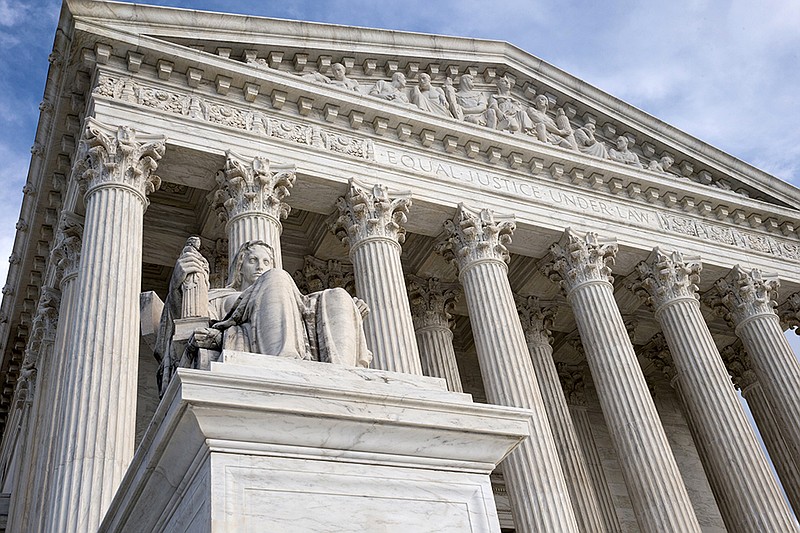WASHINGTON-Republican Sen. Jeff Flake of Arizona said Thursday that he would work to advance the confirmation process for Supreme Court nominee Merrick Garland this year if Democrat Hillary Clinton wins the White House.
Flake's comments come less than two weeks ahead of an election that is expected to shape the ideological balance of the Supreme Court, possibly for decades. And they foreshadow a growing divide among Senate Republicans about what to do with Garland's long-languishing nomination when Congress returns Nov. 14 for the lame-duck session.
Clinton is leading GOP rival Donald Trump in public opinion polls and the Republican's path to victory is narrowing, while Democrats could retake control of the Senate. Senate Republicans have blocked confirmation hearings and a vote for Garland for 225 days so far, saying that the next president should pick who fills the seat of the reliably conservative Justice Antonin Scalia, who died in February.
"If Hillary Clinton wins the election, I will be actively trying to round up votes to have hearings for him in a lame-duck session," Flake told reporters in Washington.
Flake, who is among those GOP lawmakers who have openly criticized Trump, also indicated that there are more than 60 votes to overcome a filibuster and allow for a confirmation vote on Garland.
"We're talking just cloture as being the hurdle," Flake said, referring to the Senate procedural vote that would occur before Garland's nomination would be considered. "I think there are enough people who do not see it as the Senate's proper role to hold somebody indefinitely."
Flake, along with other Republican members of the Senate Judiciary Committee, previously signed onto a letter in February stating that there would be no confirmation hearings on Garland "until after our next president is sworn in on January 20, 2017."
In March, President Barack Obama picked Garland, the 63-year-old chief judge of the U.S. Court of Appeals for the D.C. Circuit, who is considered a moderate by many.
Those considerations were mentioned by Flake, along with a pining for the days in the Senate when lawmakers didn't filibuster the president's executive nominations.
"Like I've said before, I'm not pretending he's a conservative or someone we would put up if we had the White House," Flake said. "But I do think he's more conservative than somebody Hillary Clinton might nominate, particularly if she has a Democratic Senate to confirm that nominee."
Flake said it "would take an extraordinary circumstance for me to participate in blocking (Garland) from a floor vote"-without saying how he would vote on Garland.
Senate Majority Leader Mitch McConnell of Kentucky has not commented in recent weeks on his strategy for Garland's nomination in the lame-duck. Before the Senate recess, McConnell reiterated his view that the next president should fill Scalia's seat and that the Senate would be busy with other issues in the post-election session.
Other Republican senators have spoken out, however. At a campaign rally Wednesday in Colorado, Sen. Ted Cruz of Texas appeared to suggest that a Republican-controlled Senate could block Supreme Court nominees.

